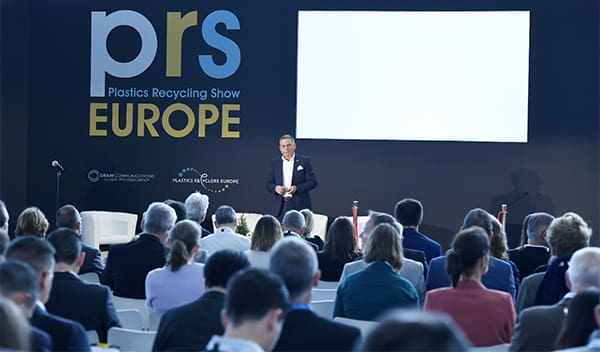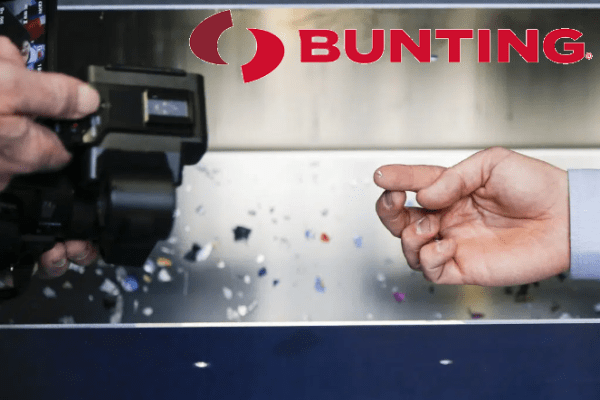
Total Metal Separation at K 2022
One of the world’s most comprehensive ranges of metal separators will feature at the international K 2022 plastics and rubber trade fair (19-26 October 2022, Düsseldorf, Germany). On the interactive stand B01 in hall 10, Bunting displays working examples of magnetic separators, metal detectors, and an Eddy Current Separator specifically designed to process plastic waste.
Bunting is one of the world’s leading designers and manufacturers of magnetic separators, eddy current separators, metal detectors, and electrostatic separators. Bunting’s headquarters are in Newton, Kansas, the USA, with European manufacturing facilities in Redditch, just outside Birmingham, and Berkhamsted, both in the United Kingdom.
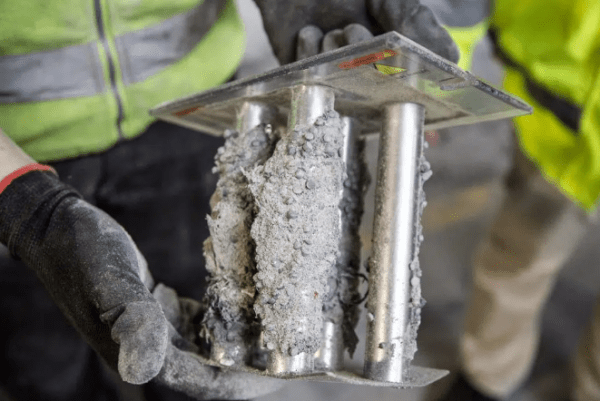
Plastic manufacturing relies on the feed material, whether virgin or recycled, being metal-free. Metal contamination is costly both from equipment damage and production downtime. With a continued increase in the use of recycled material from internal and external sources, the need for optimum metal separation has never been more acute.
Metal contamination enters the material stream in many forms, from large tramp metal, such as nuts and bolts, to fine particulates of steel, stainless steel, and aluminium foil. A plastics manufacturing operation should have metal detectors and magnetic separators installed throughout the production process, treating the raw material feed through immediately before the injection moulding and recycling internally generated plastic waste. The combination of magnetic separators and metal detectors protects from metal particulates clogging sprue lines, damaging extruder screws, and, ultimately, affecting end-product quality. They also protect shredders and granulators from damage.
The magnetic separators and metal detectors on display on the Bunting stand at K 2022 are specifically designed for each process stage. Commonly used together in a Cleaning Station configuration, the magnetic separators attract and remove ferrous metals leaving the metal detectors to focus on non-ferrous metal removal.
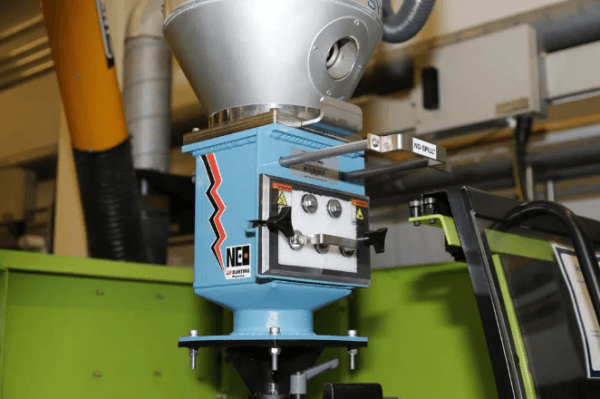
The range of magnetic separators includes the extremely popular FF Drawer Filter Magnets used in plastic manufacturing plants globally and feature ultra-strong Rare Earth Magnets that securely hold and remove small ferrous metal contamination. The FF350 High-Temp Drawer Magnet answers the growing demand from OEMs and end-user customers for processing material that comes out of a drier at higher temperatures. Higher temperatures promote plastic clarity and performance, particularly in injection moulding. The FF350 features special high temperature-compensated rare earth magnets to prevent the permanent damage experienced by standard rare earth magnets when exposed to excessive heat.
The five Metal Detectors displayed and operating on the Bunting stand at K 2022 are designed for installation at different stages within the manufacturing process and to handle specific materials. The quickTRON 05, quickTRON 03R and HS9050/9100 Metal Detectors detect and separate all metal contamination in free-fall applications. The Machine Mounted Metal Separator (MMS) is designed to operate in choke applications and is mounted directly on top of Injection Moulding Machines. The reject mechanisms automatically remove metal contamination while minimizing the loss of sound products. The pTRON Metal Detector detects and rejects all ferrous metals, non-ferrous metals, and stainless-steel metal contamination within enclosed pipe systems. With a double pinch valve, these metal detectors prevent loss of pressure or vacuum when installed in pressurised, suction, or vacuum conveyor lines.
The global focus on the recycling of plastic waste continues to drive innovation. For removing the small non-ferrous metal found when recycling polypropylene, PET, or film, Bunting developed the High-Intensity Eccentric (HIE) Eddy Current Separator. The Eddy Current Separator (ECS) utilises magnetic forces to physically repel non-ferrous metals and enables separation from non-conductive materials.
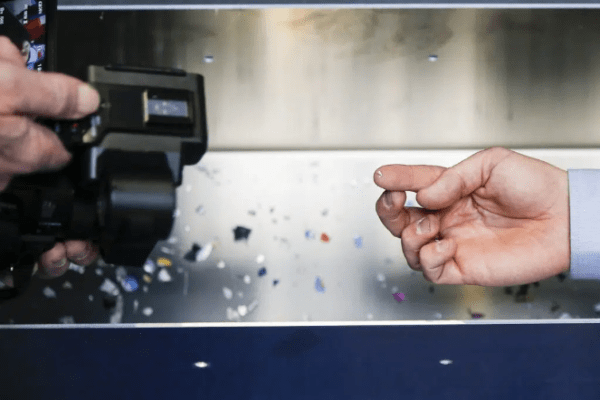
On stand B01 in hall ten at the K 2022 show, visitors will see a production-size Eddy Current Separator and Drum Magnet separating small ferrous and non-ferrous metal from shredded PET. Bunting invites visitors to bring samples to the show for testing.
The Eddy Current Separator works perfectly prior to Bunting’s revolutionary ElectroStatic Separator. The ElectroStatic Separator enables the removal of ultra-fine conductive metals.
Complimenting the range of Magnetic Separators and Metal Detectors are Bunting’s Shredder Feeder and Discharge Conveyors, which are designed specifically for material handling in the plastics industry. The conveyors, with an integrated magnetic separator or metal detector, provide optimum controlled product feed and metal damage protection for a shredder or granulator. The conveyors are particularly suited for installation in lines reprocessing in-house plastic rejects and plastic waste in a recycling plant.
Any plastics producer or recycler with a metal contamination issue is invited to visit the Bunting stand and talk with one of Bunting’s experienced internationally-based sales team.
Bunting-Redditch – www.bunting-redditch.com
Read more news from Bunting here.
![]()
Bunting
+44 (0) 1527 65858
Website
Email



